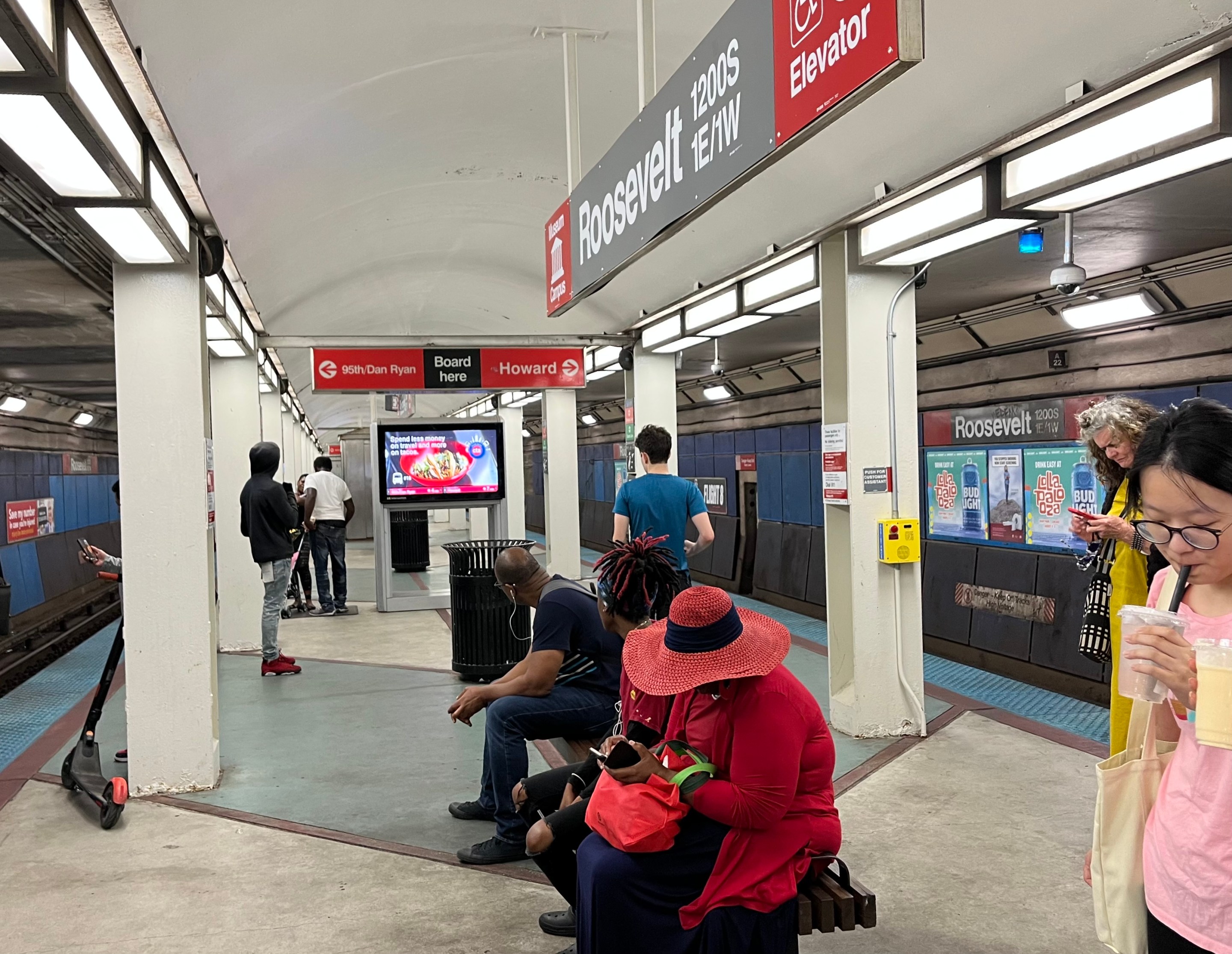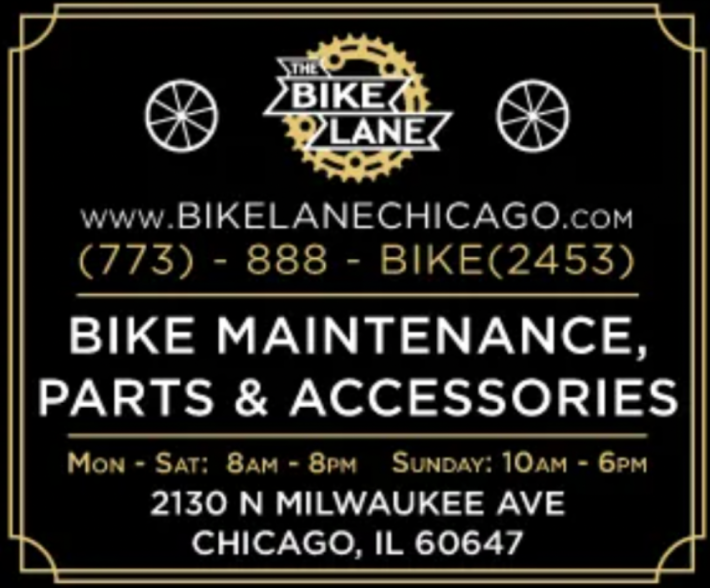
Yesterday, Trump's Federal Transit Administration chief Marc Molinaro scolded Chicago leaders about crime on public transportation in a Tribune op-ed titled, "The CTA has become a rolling symbol of abdication. Riders don’t feel safe." Read it on the Tribune website, Bluesky, or Twitter.
In this piece, Molinaro, a Catskill, NY resident, tips his hand, revealing that he probably knows a lot more about the Borsch Belt than the Red Line.
Molinaro's first sentence about "the escalating violence [emphasis added] in and around Chicago’s transit system" is inaccurate. I realize that his boss had a problem with escalation recently. But, despite a spike in the number of major CTA safety and security incidents reported per million passenger trips during COVID, when ridership plummeted, that figure has actually been declining in recent years.
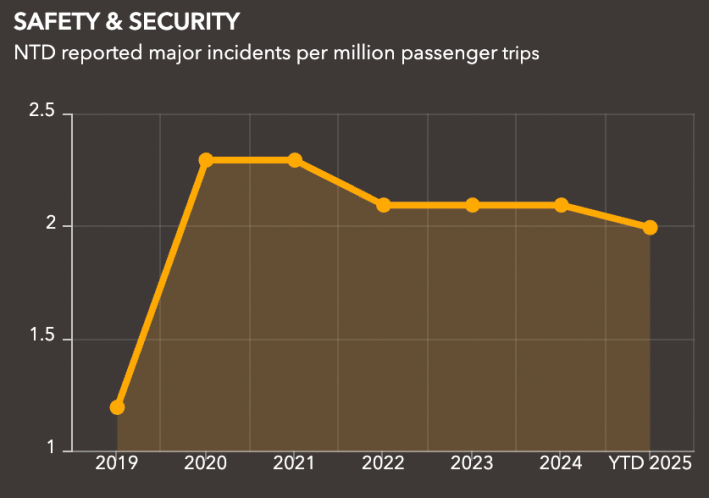
Sure, two major incidents per million trips is still too high. But Molinaro's claim that "lawlessness is taking hold of Chicago’s public transportation system" is false, since in reality the situation is gradually improving.
Moreover, Molinaro's seems completely unfamiliar with how Chicagoland's transit system functions. That's laid bare in his comments blaming public safety issues on fare evasion.

"While danger multiplies, fare enforcement has collapsed," he writes. "Over three years, there were just 43 arrests for fare evasion on Metra. That number isn’t a strategy – it’s surrender. A city that shrugs at the most basic rule, 'pay your fare,' shouldn’t be surprised when predators conclude there are no rules at all."
"[Chicago Mayor Brandon Johnson] and his allies call enforcement excessive or unfair," the FTA administrator adds. "What’s truly unfair is forcing families, seniors, and workers to ride trains where lawlessness is the norm."
The 2020 letter to the Sun-Times Molinaro linked to does in fact state that "there were 43 arrests between 2016 and 2018 for fare evasion on Metra trains." However, the writer, then-Active Transportation Alliance advocacy manager Julia Gerasimenko, wasn't arguing there were so few people apprehended because no one was bothering to require fare payment. In fact, she said the opposite: "Clearly, fare evasion isn’t a major problem for the agency."
Why is fare evasion relatively uncommon on Metra? Because, as Molinaro seems to be unaware, Metra is the region's commuter railroad, where conductors walk through the cars to make sure riders have paid their fares.
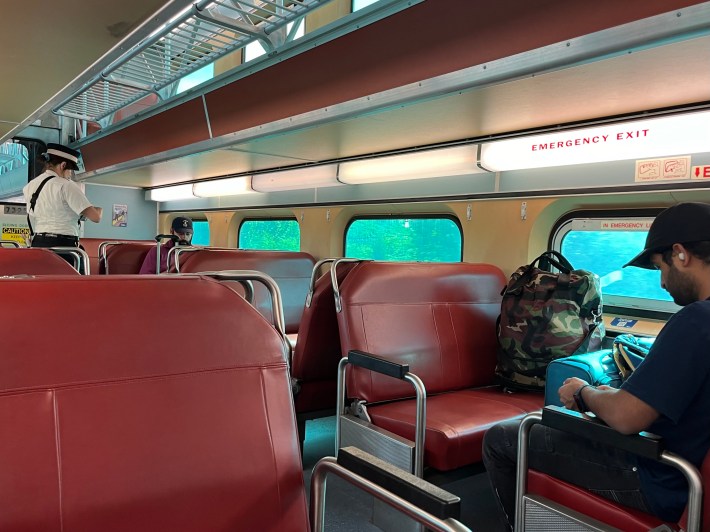
That's not to say Metra has no issues with fare evasion, but yesterday spokesperson Michael Gillis indicated such matters are usually resolved without handcuffs. "If [a passenger is] flat out refusing to pay, the conductor will call Metra Police for assistance in that situation. Police can charge them, but often they do end up paying or getting off at the next stop."
And even if Metra enforcement data actually did prove Chicago is "a city that shrugs" at non-payment, Molinaro blaming Mayor Johnson for that low arrest number is just silly. The Chicago mayor appoints exactly one director to the largely suburban commuter railroad's 11-member board (which hires the executive director). Therefore, Johnson has minimal say on Metra's enforcement policies.
Last week, Streetsblog USA Editor Kea Wilson discussed how wildly disproportionate the far-right response to public safety issues on public transportation is compared to garden-variety traffic violence. It seems the MAGA crowd is more interested in cracking down on transit systems because they're less likely to use them.
Accordingly, Molinaro ominously ended his op-ed by claiming that local transit decision makers are guilty of "negligence to an unacceptable degree that has captured this administration’s attention." Earlier in the piece he claimed, "Since President Donald Trump sent in the National Guard just over a month ago, homicides are down 53 percent from last year, and violent crime is down 40 percent Washingtonians are breathing a little easier."
I haven't fact-checked that statement. But judging from the recent Keystone Cops-like behavior of Trump's ICE agents in Chicago, if those numbers are accurate, it's likely Molinaro's assertion is a great example of "Correlation is not causation."
ICE attempted and failed to disappear a food delivery guy. It needed to be scored.
— Steve Marmel (@marmel.bsky.social) 2025-09-29T03:10:16.612Z
ICE agents at Dearborn Street and Wacker Drive unsuccessfully try to apprehend a delivery biker who yelled "F--- Trump!"
"This seems like a bid to put National Guard on our transit," commented SBC contributor Ellen Steinke on Facebook. "And the [right-leaning] Chicago Tribune published it?"
"This administration just hates any city that's Democratic," responded a Streetsblog reader. "So I think they have ulterior motives in mind by wanting to send the feds under the guise of safety and crime fighting."
If you read this website's morning headline stack, you're aware that the CTA has, in fact, had some troubling incidents lately. Here are some headlines from the last two weeks:
• Man, 42, charged with attempted murder after allegedly pushing a man, 51, off Washington Blue platform Wednesday 9/17 around 5 PM (FOX)
• CPD released images of man, 25-30, suspected in beating of 2 other passengers after argument on bus Thursday 9/18 near Jackson/Western (CBS)
• Police release images of 4 suspects in armed robbery that happened 8/30 around 1:15 AM at Morgan Green Line station in Fulton Market (ABC)
• CPD releases image of suspect in hammer attack and robbery of man, 30, following argument on Red Line near 69th Friday 9/25 around 7:20 AM (ABC)
• Police release image of 2 suspects in robbery on Red Line 9/16 around 5 AM near 63rd Street in Englewood (CBS)
• Assailant badly beat man, 56, during 9/23 robbery attempt at Western Orange station, the 2nd time he's been targeted on CTA in 2 months (NBC)
For what's it's worth, I've taken the CTA regularly for 30-plus years, including a solo all-night ride on the Red and Blue lines in May 2022, and I'd never been the victim of a major crime. But it's understandable that stories like these, as well as less serious misconduct like harassment and smoking, discourage some people from using the system. That hurts efforts to restore ridership to pre-pandemic levels.
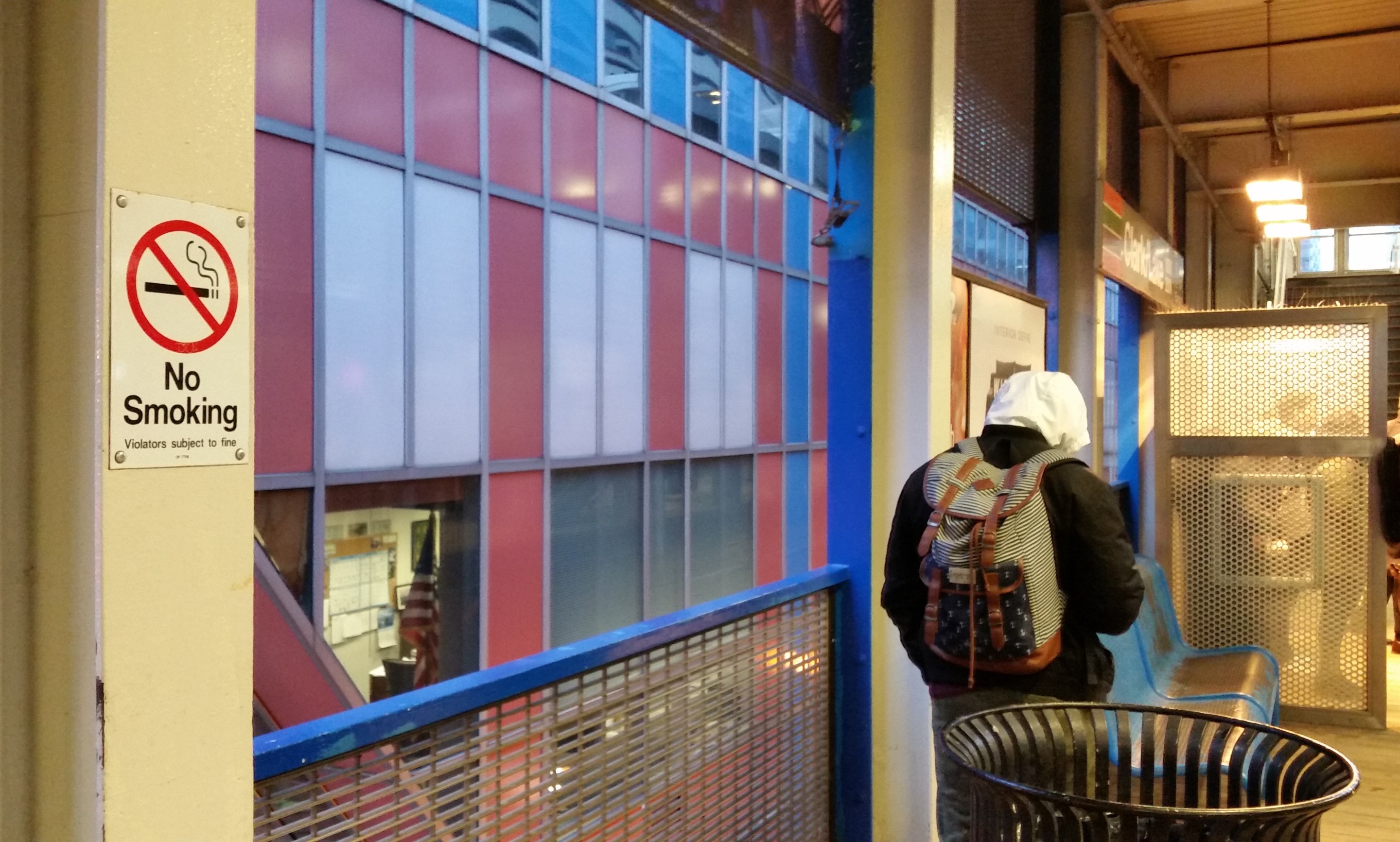
But Molinaro's notion that local leaders are asleep at the wheel when it comes to fighting crime on Chicagoland public transportation just doesn't hold water. As Streetsblog contributor Richard Day recently explained, the Illinois transit reform/funding bill HB 3438, which passed the State Senate last May and could be approved by the House next month, includes some key safety strategies.
"The Cook County Sheriff is required to convene a task force to make longterm recommendations on public safety, which could theoretically lead to a systemwide police force at some point," Richard wrote. "More immediately, the agencies are required to develop a standard, app-based approach to discretely identifying emergency situations (an update that’s long overdue). The bill also creates a Transit Ambassador program, which would add additional unarmed employees to the system."
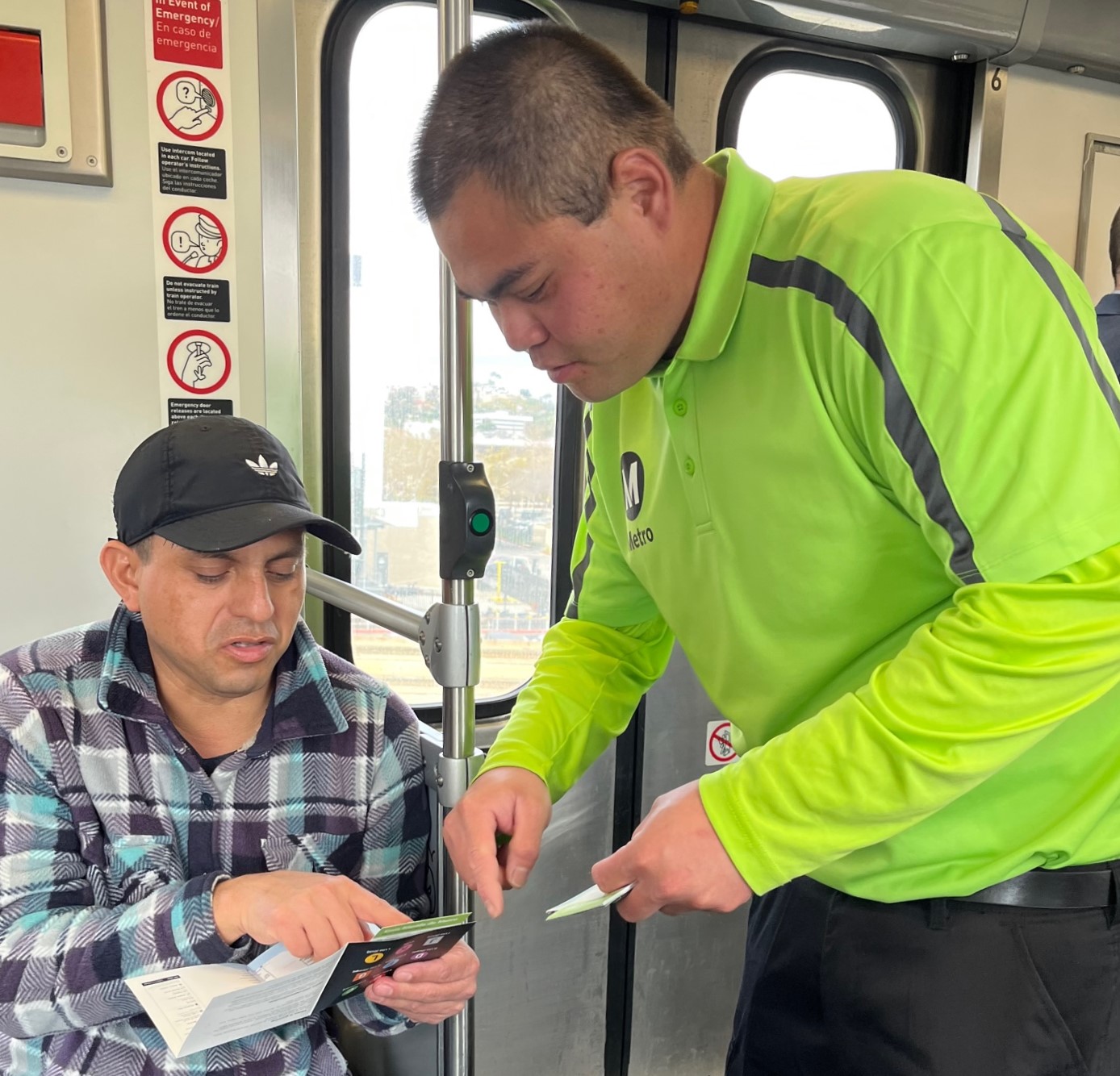
On the advocacy level, Better Streets Chicago Action Fund Board President Alex Nelson argues that officials should focus on addressing the root causes of public safety issues, rather than try to solve them through over-policing. "Chicagoans deserve nothing less than a transit system that sets the national standard for safety and accessibility," she told Streetsblog. "The most likely way to achieve this vision is with investments in CTA's workforce and operations that support reliability, cleanliness, and frequency. Our public transportation system is often where long-standing disinvestments in affordable housing, healthcare, and social support services are most visible to those not directly impacted."

"Rather than wasting taxpayer dollars on reactionary police forces, Chicagoans should be advocating for a city that provides preventative and restorative services that support our most marginalized neighbors," Nelson added. "A robust and healthy public transit system is one small part of an essential social fabric that will enrich the lives of all Chicagoans."
Local transit advocates have diverse opinions on the best ways to improve safety on the CTA. But there's one thing most of us can agree on. Donald Trump parachuting in soldiers, in an attempt to bully Chicago into submission, is not the answer.
Read Marc Molinaro's op-ed, "The CTA has become a rolling symbol of abdication. Riders don’t feel safe." on the Tribune website, Bluesky, or Twitter.

Do you appreciate Streetsblog Chicago's paywall-free sustainable transportation reporting and advocacy? We officially ended our 2024-25 fund drive in July, but we still need another $43K+ to keep the (bike) lights on in 2026. We'd appreciate any leads on potential major donors or grants. And if you haven't already, please consider making a tax-deductible donation to help us continue publishing next year. Thank you!
